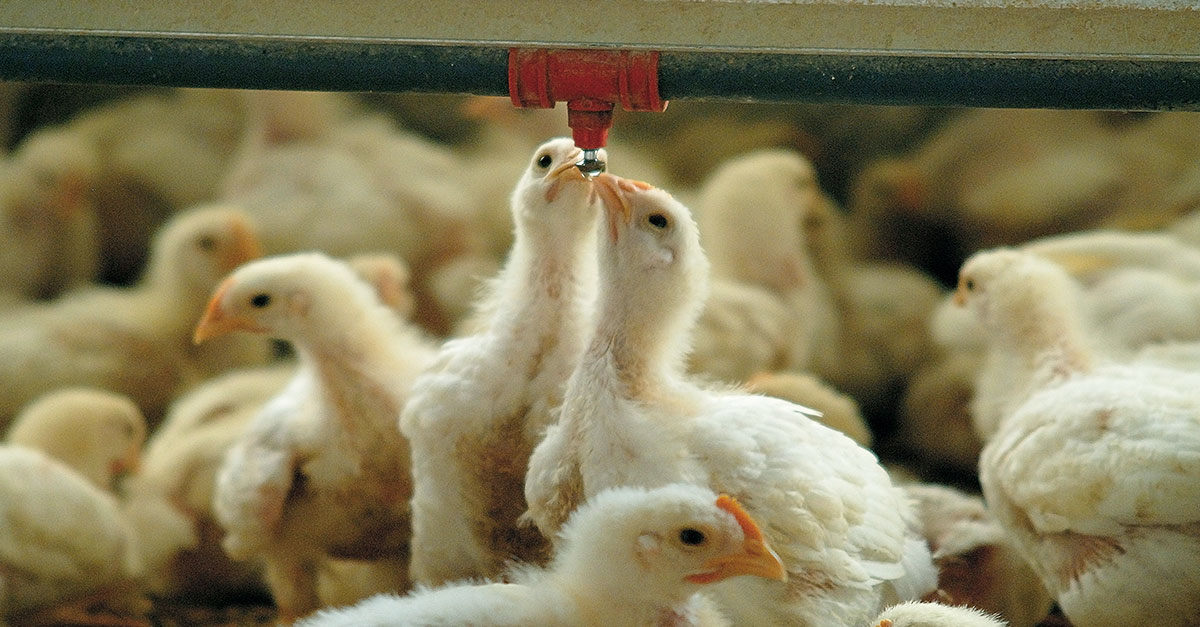Gumboro disease: 4 key aspects for controlling IBD in your farm
23 April 2021
Gumboro disease is a highly contagious disease with great resistance in the environment. Vaccination using drinking water vaccines is one of the most established preventative methods globally.

Drinking water vaccines offer important benefits for the producer and the chicks, but there are some key points that should be followed at each stage of the chick’s life to achieve the best performance results.
Daily biosecurity procedures are considered to be the best management practice to reduce the possibility of introducing infectious diseases to poultry farms.
Remember to follow external and internal biosecurity measures to avoid the entry and spread of the virus.
The performance of drinking water vaccines can be strongly affected by maternally derived antibodies (MDA). Moreover, too early exposure of the virus in the bursa of Fabricius can lead to severe immunosuppression.
Thus, it is very important to know the MDA level from the first day of life (through serology tests) and to determine the optimal day of vaccination.
Calculate the optimum age for vaccination of the day-old chicks.
In order to avoid:
On the optimal day, it is necessary to follow good vaccination practices to ensure the best results. Vaccine and environmental temperatures, good water quality, time elapsed after reconstitution, etc. are parameters to be evaluated.
Ensure correct quality management of the vaccines and the water to maximize the proportion of the flock that receives the correct dose.
It is recommended that control audits are carried out throughout the process to find out if there is room for improvement. In addition, the vaccination results should be analyzed to ensure that it was carried out correctly and that the animals are in good health and have a high productive performance.
Evaluate critical control points and vaccination effects:
Don't miss any updates
Controller: LABORATORIOS HIPRA, S.A.
Purposes: Managing the contractual and/or business relationship with HIPRA, including sending news, promotions and invitations to events sponsored by HIPRA.
Lawful basis: Performance of the contractual relationship and HIPRA’s legitimate Interest.
Recipients: Third parties to which HIPRA has entrusted cloud computing, security, auditing, mailing, technical and computer support services, as well as companies in its group.
Rights: Request access to and rectification or erasure of personal data and other rights as explained in the additional information. You can seeview the detailed additional information about data protection in our Privacy Policy.
For further information, please check our detailed information on Data Protection.